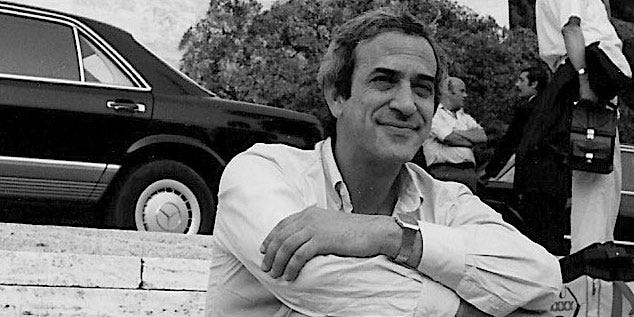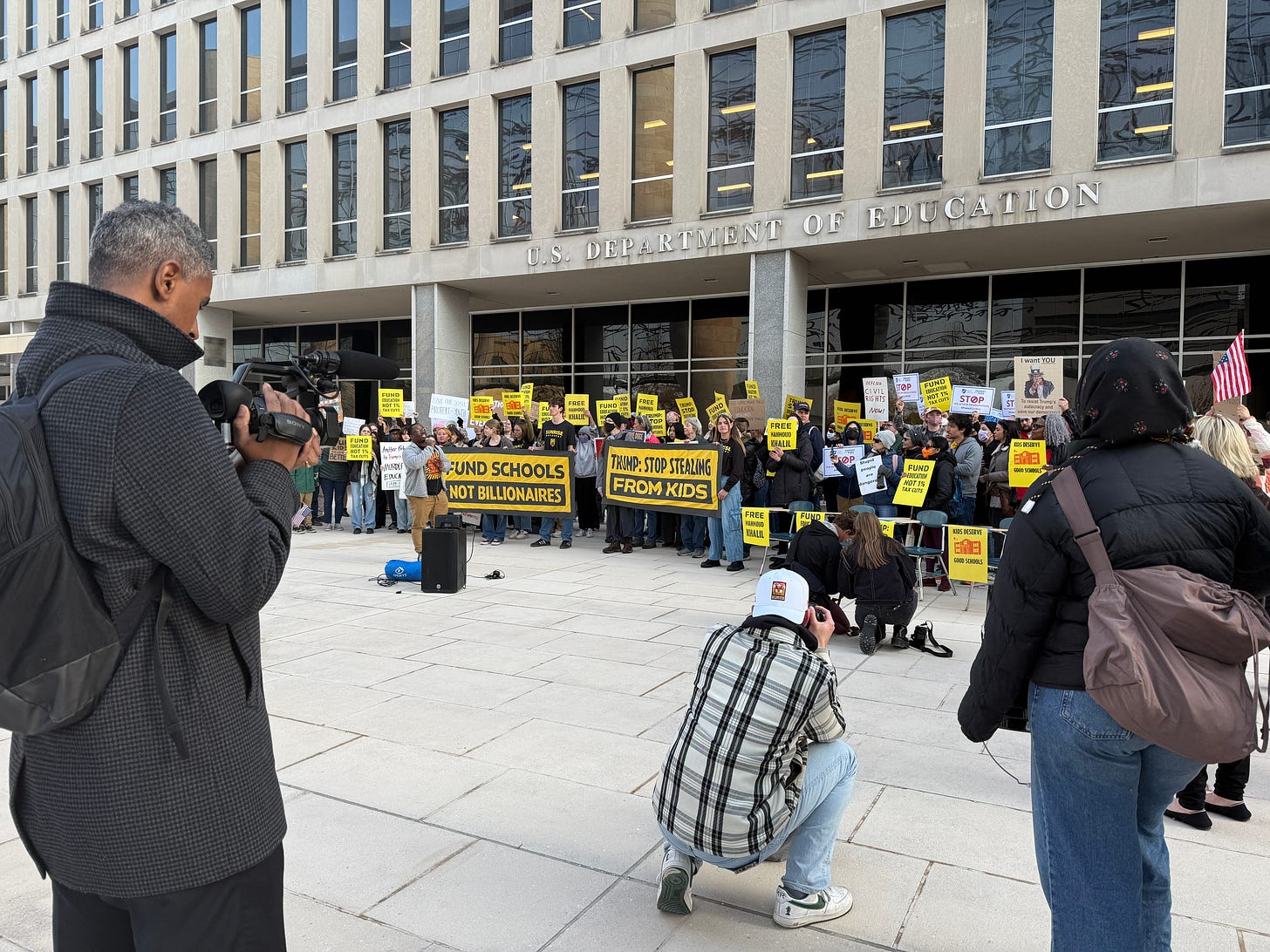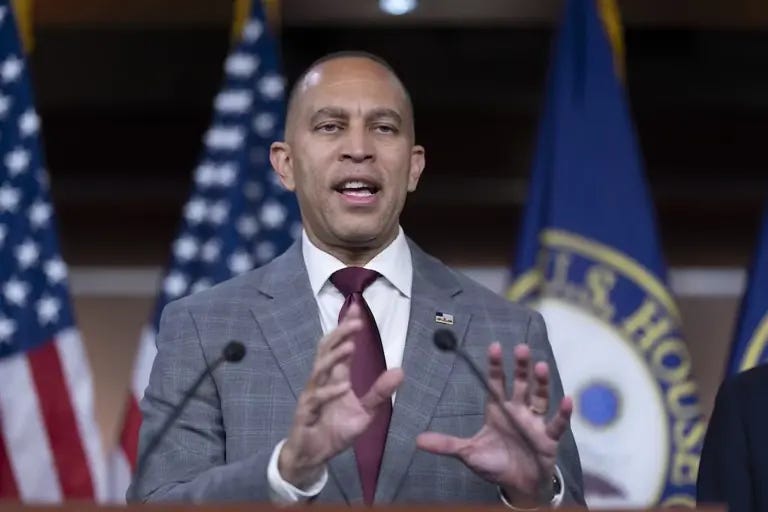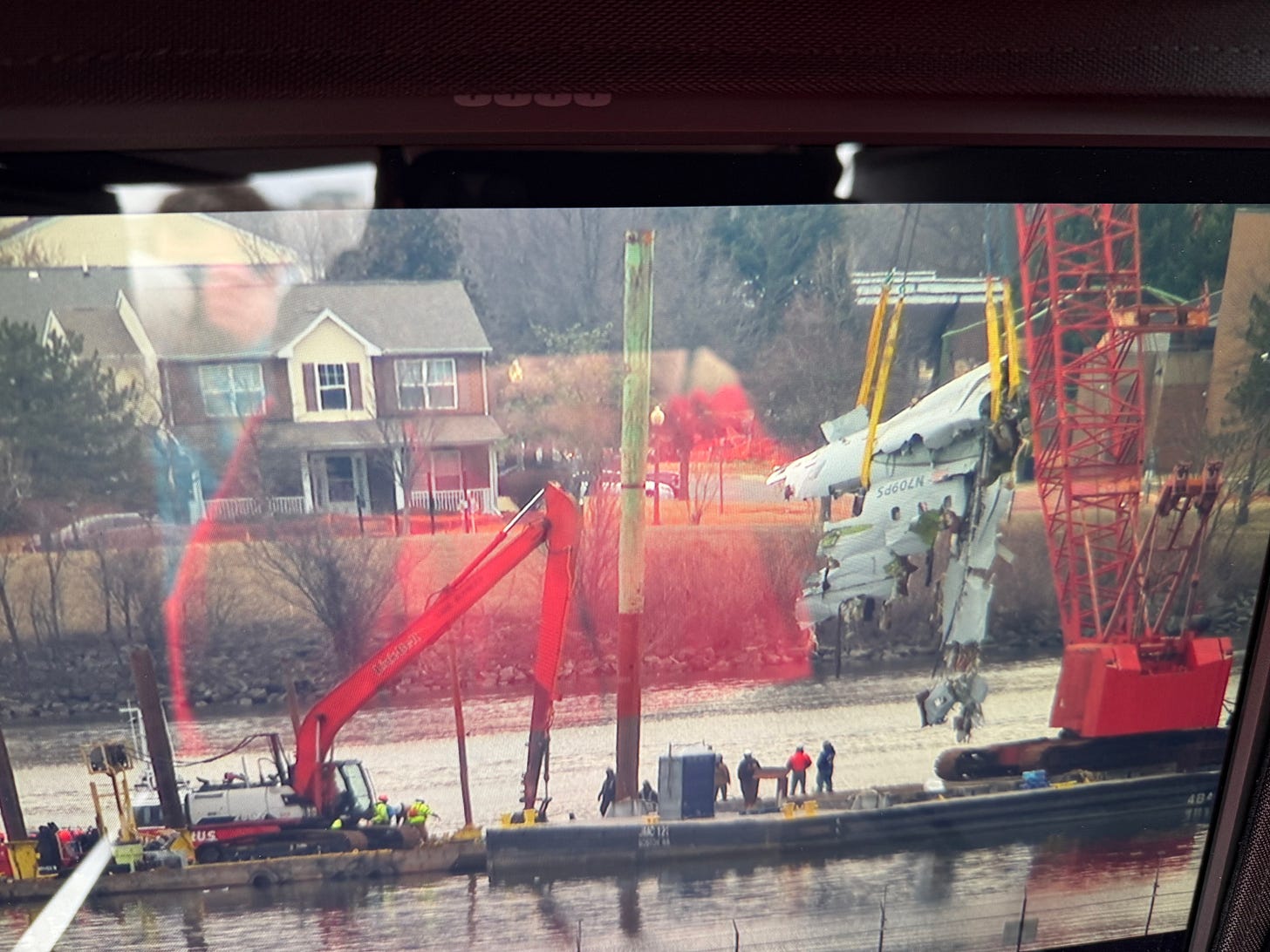Inside the Kaplan Fellowship: What I Learned in the ABC News D.C. Bureau
What Network News Taught Me About the Power Behind the Camera
In August 1992, ABC News producer David Kaplan was shot and killed by sniper fire while reporting from Sarajevo, Bosnia. He was just 45 years old. Kaplan had been traveling with correspondent Sam Donaldson, who, with the support of other prominent journalists, would later establish the David Kaplan Memorial Fellowship in his honor.

Each spring, the fellowship brings one University of Missouri journalism student into the ABC News Washington Bureau for a paid, semester-long assignment. Fellows receive an additional $10,000 stipend and get the rare opportunity to work across multiple platforms within the network. It’s a crash course in high-stakes, fast-paced journalism.
When I learned I had been selected as the 33rd David Kaplan Memorial Fellow, I was overcome with a mix of gratitude, and a profound sense of responsibility. It wasn’t just the honor of joining the ABC News Washington Bureau that struck me — it was the legacy behind the fellowship and the life it commemorates.
David Kaplan was a seasoned News producer someone ABC News’s then President remembered as a man of “humor, imagination, and yes, courage.” He had traveled to Sarajevo to cover a conflict, to help the world make sense of chaos.
While en route to interview Yugoslav Prime Minister Milan Panic, Kaplan was riding in an unarmored vehicle that was part of a convoy protected by U.N. peacekeepers. Donaldson and Panic were in an armored personnel carrier, but Kaplan had been placed in a separate car—one without reinforced protection—despite the convoy traveling along a road notorious for sniper activity.
A sniper’s bullet tore through the vehicle, striking Kaplan in the back. He was rushed to United Nations headquarters in Sarajevo, where he died on the operating table from a severed artery doctors couldn’t repair. Kaplan is believed to have been the first American journalist killed in Sarajevo and one of more than 30 journalists to die during the Yugoslav conflict up to that point. His death shocked the journalism world. Sam Donaldson later told Good Morning America, “I guess it was just a random shot.”
I've often thought about how life turns on a dime and sometimes I wonder where I was in that moment. Was I being rocked to sleep as that bullet tore through the van in Sarajevo? Did I stir or startle, a world away, unknowingly tethered to a future no one could have imagined? It’s a thought that lingers — a reflection on how lives intersect in ways we may never understand. After so many twists and turns in my own journey, becoming the 33rd Kaplan Fellow feels like more than coincidence.
Having reported on stories marked by sudden tragedy and irreversible consequences, I’ve learned how quickly life can change — how a single moment can shatter families, fracture institutions, and alter the course of a nation’s story. My career has taught me that journalism’s stakes are never theoretical; they are immediate and deeply human. Bearing witness to loss, upheaval, and resilience has made me not only a more empathetic storyteller, but a more relentless one as well.
After years of reporting in Belize, stepping into the ABC News Washington Bureau as a full-time journalist felt like stepping into purpose. This was the heart of American political journalism, where decisions echo across borders and where stories can help move the needle of history. I arrived eager to learn from some of the best in the business, to sharpen my instincts, and to honour a legacy — not just by carrying David Kaplan’s name, but by doing my best to carry forward the courage and conviction he stood for.
When the news broke, one of my professors texted me: “It’s the beginning of something magical and big.” I believe it is — not just for me, but for the stories I’ll help tell.
As a Kaplan Fellow, I rotated through nearly every corner of the bureau:
The Desk, Digital, Race and Culture, Global Affairs, This Week, and Penn Ave (the bureau’s nickname for its White House and Capitol Hill coverage).
The Rotations – What You Really Learn
The Desk is your first stop, and it’s essential. Here, you see how the entire operation works. You answer phones, observe assignment managers coordinating with crews, and learn how the pool camera system works—a delicate dance of cooperation between networks. You'll also get your first taste of producing a live shot, a deceptively complex task that sometimes earns you face time with correspondents.
Digital is, hands down, your most valuable rotation. This is where you can pitch stories and, if you’re lucky and fast, walk away with your own byline. It’s the place to prove your news sense, your speed, and your writing chops. I strongly recommend dedicating most of your energy here—this is where you build clips that last.
Here are some of Mine:
Naval Academy cancels speech by podcaster amid cultural turmoil
Military academies criticized for removing DEI-related books from libraries
Fired federal workers see their dreams shattered and an uncertain future
Race and Culture and ABC News Live are where you learn how to “speak ABC”—how to format pitches in the internal system so they land in the right inboxes and actually get read. But this rotation goes beyond strategy; it’s where you witness how ABC weaves diverse and inclusive storytelling into the fabric of its news coverage. As a fellow, I supported stories that explored the intersection of race, politics, and culture, contributing to breaking news, conducting interviews, logging media, and pitching ideas.

Global Affairs taught me a hard truth: you need to be fast. Really fast. Washington hearings are often covered live from the bureau, and pulling quotes directly from Otter transcripts in real-time is an art I didn’t quite master—but I now know it’s a skill worth developing.
Still, I did get one win. I successfully pitched a story from back home in Belize—Belizeans will remember the Holy Thursday Hijacking. That story aired on World News Tonight. A proud moment.
This Week, ABC’s Sunday political affairs program, offers a unique lens into how the news in Washington is shaped—not just by what’s said, but by who gets the platform to say it. I joined the team over the Easter holiday, when Senator Chris Van Hollen appeared to discuss his recent trip to El Salvador and address the case of Kilmar Abrego Garcia. That case has struck a chord within immigrant communities, particularly among undocumented individuals, who see it as emblematic of the dangers they or their loved ones face. I had the opportunity to write the digital article based on Van Hollen’s remarks.
What stood out most during my rotation at This Week was the intricate choreography behind guest booking. Sunday shows often compete for the same high-profile figures, creating a behind-the-scenes dance of exclusivity, timing, and messaging that shapes the national conversation before the workweek even begins.
Penn Ave is the rotation many fellows look forward to most, and for good reason. But be warned—it’s fast, demanding, and not particularly beginner-friendly. If you’re not on track to be hired full-time, getting a Hill Pass can be difficult. Producers are often too swamped to guide fellows, so soak up what you can by observation and enjoy. A trip to the White house or the Hill can be the highlight of the fellowship, And if you're lucky, you might find yourself asking a big name a question.

What the Fellowship Really Felt Like
Let’s be honest: going from being in front of the camera to working behind the scenes can suck. When you’re used to owning a story, delivering it live, and feeling the pulse of the field, sitting in an office making cold calls feels like a rude awakening. It’s humbling — and not always in a poetic way. But the Kaplan Fellowship isn’t about spotlight moments; it’s about fundamentals. It’s about learning the backbone of national news: the rigor of fact-checking, the standards that govern how information and video are verified and aired, and the discipline it takes to function inside a massive corporate structure.
I had to relearn how to send an email — not literally, but strategically. In an organization like ABC, what you write, how you write it, and even when you send it, can either elevate your voice or bury it. I learned to be cautious, precise, and clear. I also learned how to advocate for myself with managers — many of whom were generous with their time and genuinely interested in nurturing new talent. That said, I believe the fellowship would benefit from sending fellows out to do the news more often. There’s only so much you can absorb from a desk while making interview calls. Reporting in the field grows your confidence and your love for the craft. That’s where journalism lives. Still, this fellowship taught me what makes that kind of journalism possible — and how to be the kind of journalist who’s ready when the time comes.
A Note for International Fellows
The Kaplan Fellowship carries a quiet reputation as a gateway to long-term opportunities with ABC News. And, it’s true, many previous fellows are a testament to this, but here’s the reality: journalism in 2025 is in flux. Layoffs hit ABC News during my fellowship. Desk Assistant positions are few and far between. Add a visa requirement to the mix, and the odds of a direct pipeline to employment grow slim. That’s not to say it’s impossible—but know what you're walking into and make contingency plans.
Advice for the Next Kaplan Fellow
While on The Desk, get access to everything. Learn how to access and upload video, how to use ABC’s corporate Otter (not your personal one), and how to file for expense reimbursement.
Make sure your email ends in @abc.com, not @disney.com—trust me, your sources will take you more seriously.
Pitch, pitch, and pitch some more. It’s hardly something I have to say to someone steeped in the Mizzou method but pitches take you a long way.
Be present. Say yes to everything!

My most impactful opportunity came on January 29, 2025—the night of the Potomac River mid-air collision. A major news event had happened, and I did what I’ve been trained to do: I showed up. I didn’t know if I was needed or even wanted, but I knew that showing up is part of the job. It was 1 A.M., and they ultimately sent me home—but when morning came, I was first in line for an assignment. I was sent to a rooftop across from Reagan National Airport to secure a live shot—and I found it. That moment launched several days of field producing coverage of the wreckage removal, a pivotal experience in my time at the bureau.
The Kaplan Fellowship isn’t just a résumé line—it’s a chance to see how national news is made, and sometimes, to help make it yourself.






Love this! Can't wait to read more of what you're working on!